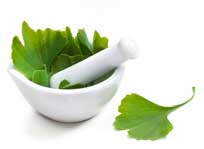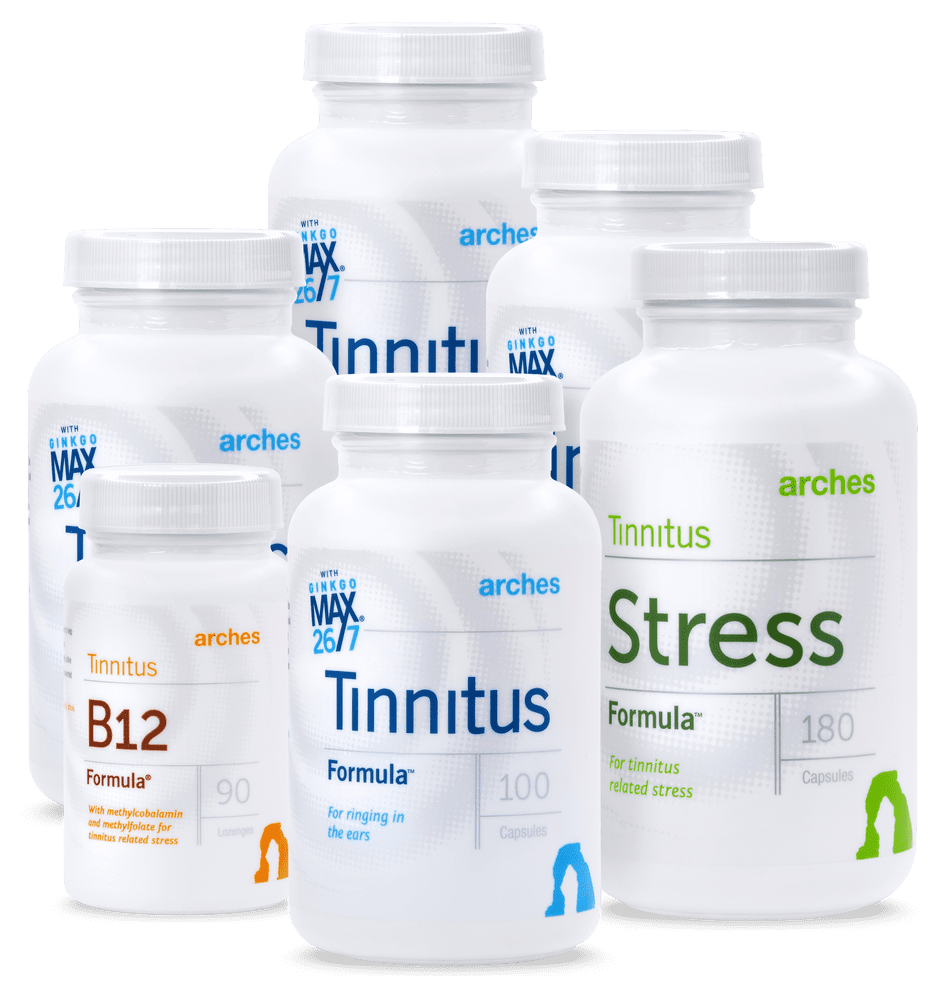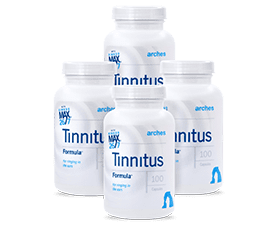By Barry Keate
Barry Keate, has lived with tinnitus over 40 years and has published 150+ research articles on numerous aspects of tinnitus. He is an expert on the condition and a well-known advocate for those with tinnitus.

There is a new study that compares Ginkgo biloba with hearing aids for the treatment of tinnitus. It was published online June 18, 2019 in the Brazilian Journal of Otorhinolaryngology (Ear, Nose & Throat). This study joins the ever-growing compilation of positive studies showing conclusively that Ginkgo biloba extract is effective for tinnitus.
Thirty-three patients were enrolled who had tinnitus for a minimum of three months and had hearing loss as the primary cause. Between 85 – 96% of people with tinnitus have some degree of hearing loss. The average duration of tinnitus was slightly under five years. The patients were randomly assigned to one of three treatment options and treated for 90 days. 1 – 240 mg per day of Ginkgo extract EGb 761; 2 – hearing aids; and 3 – both hearing aids and Ginkgo biloba. (1)
Primary outcome measures were improvements in the Tinnitus Handicap Inventory (THI), which assesses the effect of tinnitus on quality of life, and the Visual Analog Scale (VAS), which scores the degree of discomfort and intensity of symptoms. Both measures are widely accepted as universal tests which quantify the impact of tinnitus on daily living. Tests were conducted at baseline and after 90 days of treatment.
Mean THI and VAS scores decreased in all three groups. When the researchers separated results based on duration of tinnitus, less than 5 years, compared with over 5 years, they found hearing aids were more effective in the shorter duration than the longer. Short-term tinnitus had improvement of 71.2% while longer term had improvement of 34.7%. They speculated the patients with the shorter time of tinnitus may not have completely undergone neuroplastic changes in the central nervous system and were more easily habituated to tinnitus.
In the ginkgo group, separated by duration of tinnitus, results for short-term tinnitus were 54.3% reduction and for longer-term results were 74.5% reduction. In the ginkgo group the tinnitus duration does not seem to affect the treatment as much as in the hearing aid group. Thus, it can be shown that treatment with Ginkgo biloba was effective regardless of the patients’ tinnitus duration and was more effective overall than the hearing aids.
The group using a combination of hearing aids and Ginkgo biloba had an improvement of 53.0% in the shorter duration group and 68.1% in the longer duration group. This was an unexpected result and shows it is not possible to determine a synergy between ginkgo and hearing aids.
This study, along with numerous previous studies, gives conclusive proof that Ginkgo biloba extract is effective in reducing tinnitus for the great majority of tinnitus patients who use it at the proper dose and for the proper duration of treatment.
Previous positive studies on Ginkgo biloba and tinnitus include the following:
Ginkgo biloba extract was developed and patented by the Dr. Willmar Schwabe GmbH & Co. of Karlsruhe, Germany in the 1960’s. It is the most studied herb in the world with over 400 clinical studies on its safety and efficacy for many conditions, including tinnitus. The German Commission E, a division of the German Federal Health Agency, has recommended Ginkgo biloba for tinnitus since 1978.(2)
In 2001 an overview of 19 clinical studies on ginkgo for tinnitus by Holstein was published. There were eight randomized, placebo or other reference drug-controlled trials and several open studies included. The overview found, “…a statistically significant superiority of treatment with the Ginkgo biloba special extract EGb 761 as compared with placebo or reference drugs applied for periods of one to three months. Open studies, too, some involving large numbers of patients, revealed appreciable improvements under ginkgo treatment.”(3)
In 2011, von Boetticher published an overview of eight randomized, placebo-controlled studies on ginkgo for tinnitus in Neuropsychiatric Disease and Treatment. He writes, “In conclusion, EGb 761, a standardized Ginkgo biloba extract, is an evidence-based treatment option in tinnitus.”(4)
In 2018, Spiegel R, et. al. published in Clinical Interventions in Aging, a meta-analysis of Ginkgo biloba for tinnitus and dizziness among patients with dementia. They concluded. “Overall, EGb 761 was superior to placebo” and “Our findings support the notion that EGb761 is also effective in alleviating concomitant neurosensory symptoms in patients with dementia.”(5)
Finally, published in the Journal of Otolaryngology-ENT Research in 2019, a clinical study of tinnitus compared Ginkgo biloba with caroverine and a multivitamin as a placebo. Caroverine was initially administered by injection, followed by two capsules daily. Ginkgo biloba was administered by capsules. In the caroverine group, 63% responded favorably immediately after injection but 25% relapsed after going to capsules, for a 47% favorable response rate. The Ginkgo group had a 50% favorable response rate which continued as long as the patients used it. The authors concluded, ‘…in the long-term Ginkgo biloba had a better response over Caroverine.” (6)

Note: Caroverine is available in Austria and India but not in the US due to numerous side effects
Taken together, this compendium of 30 clinical trials on Ginkgo biloba for the treatment of tinnitus presents concrete proof of its effectiveness.
Arches Tinnitus Formula® with Ginkgo Max 26/7® is the most advanced ginkgo extract on the market. It exceeds the requirements of the standardized EGb 761 extract and has been developed specifically for those with tinnitus. See a comparison of Ginkgo Max 26/7 and the standard extract.
References:
1 – https://www.ncbi.nlm.nih.gov/pubmed/31300303
2 – https://buecher.heilpflanzen-welt.de/BGA-Commission-E-Monographs/0183.htm
3 – http://comilac.com.tr/uploads/pdf/Kaynak20x.pdf
4 – https://www.ncbi.nlm.nih.gov/pmc/articles/PMC3157487/
5 – https://www.ncbi.nlm.nih.gov/pubmed/29942120
6 – https://medcraveonline.com/JOENTR/JOENTR-09-00298.pdf
Get Free Shipping!
Order now and get free shipping on either the Tinnitus Starter Kit or Combo Pack. Try the doctor recommended products with clinically proven ingredients for tinnitus. No coupon code required.

